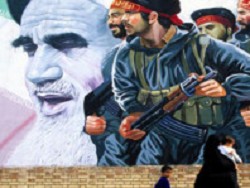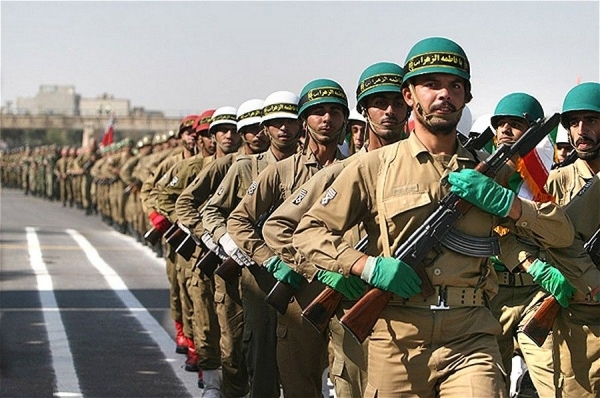
Before the beginning of Hajj and the great Islamic holiday of Eid al-Adha (sacrifice) 2016 in the Islamic world with a new strength, a conflict broke out between Saudi Arabia and Iran, which not only deepened the differences between the two countries, but drove a powerful wedge between the Sunni and Shiite worlds.
Recall that Riyadh and Tehran broke off relations in January, after in response to the execution in Saudi Arabia on charges of terrorism, the Shiite preacher Nimr al-Nimr, Iran was attacked Saudi diplomatic missions, including the Consulate General in Mashhad, which was set on fire.
And here is a new confrontation, now around the Hajj. As in the previous episode of confrontation, both sides believe themselves right.
The immediate reason for another round of confrontation was the fact that the Iranian Hajj mission decided to get rid of pilgrims from Iran on Hajj in 2016. Version Saudi side, it was because the Ministry of Hajj has refused to provide Iranian pilgrims exclusive rights to allow the conduct of the demonstration. The Iranian side accused the Saudis in the lack of flexibility in discussions about getting a visa in the conditions of the rupture of diplomatic relations, with the result that, say, both rounds of negotiations were unsuccessful.
Dissatisfaction with the outcome of the negotiations spilled over into the sphere of public policy September 5, and it expressed the spiritual Leader of Iran, Ayatollah Ali Khamenei, who called for the revision of the system of control of the Islamic shrines. He also criticized Saudi Arabia is criticized for the organization of the Hajj.
“Islamic countries should change the system of control of the two shrines and the system of organization of the Hajj. Saudi Arabia’s rulers should be held accountable for the crimes that are caused by their actions,” Khamenei was quoted by the Iranian news Agency IRNA.
Ali Khamenei recalled Saud last year’s tragic incident during the Hajj, when due to crowding in the valley of Mina died 460 Iranian pilgrims. The Ayatollah blamed the incident on the authorities of Saudi Arabia, which, according to the Iranian spiritual leader, is not able properly to organise the Hajj. Similar statements were made by the Minister of foreign Affairs of Iran M. Dzh. Zarif and former President Ali Akbar Hashemi Rafsanjani.
The response of the Saudi side has not kept itself waiting. The crown Prince of Saudi Arabia Mohammed bin Naif, head of the Ministry of interior of the Kingdom, on the same day stated that the Iranian authorities are politicizing the situation around the Hajj and don’t want the citizens of the Islamic Republic was on a pilgrimage. “The Kingdom gives the Iranians the same conditions that other guests of God (pilgrims). Before the start of the season of the Iranian Hajj mission for its citizens demanded special conditions that differ from the standards followed by other countries,” explained Mohammed bin Naif.
This did not stop. Verbal escalation continued and aggravated the situation to the limit. With sharp statements of the Iranian leadership was noted and the Supreme mufti of KSA Abdul-Aziz Al-Sheikh and the Minister of Hajj and Minister of foreign Affairs, KSA Adel Jubeir. Especially resonant was the statement of the Grand mufti, who on 6 September said that the attacks, ALI Khamenei, on Saudi Arabia in connection with the annual pilgrimage of Muslims, he says, “no wonder”. “We need to understand that these people are not Muslims. They are descendants of the Zoroastrians. And their hostility to Muslims is it’s a long time, especially to the Sunnis”.
Denying the Shiites the right to be Muslims, the highest religious authority in Saudi Arabia has raised the bar of controversy to a new level. Earlier Saudi scholars belonging to the Hanbali madhhab of Islam, can assert that the Shia are heretics and schismatics, but none of them haven’t declared them non-Muslims. In other words, Saudi spiritual leader “theoretically” justified the refusal of the Shiites visiting Mecca! In further interviews he continued with sharp criticism of Iran, accusing him of supporting terrorism, interference in the Affairs of slave and keeping them in “proxy wars”, obviously hinting at the involvement of the Shiite Hezbollah in the Syrian conflict.
In fairness I must say that Saudi authorities still admit that the Iranians can take part in the Hajj. Minister for Hajj Affairs, Muhammad Salah Bin Taher said that Saudi Arabia had agreed to issue visas to the Iranian participants of the pilgrimage, provided that they arrive in the Kingdom through third countries. According to him, the possible transit through EU member States and Africa, USA, Australia and New Zealand (the hard way!).
In an extensive information campaign is now Saudi Arabia, in addition to over-the-top and beyond the purely religious matters of controversy sounds and resentment over the fact that the Iranians, Recalling the incidents with pilgrims in 1987, 1989 and 2015 (history is not new), vilified, from the point of view of Riyadh, the enormous efforts made by the Kingdom for the reception of pilgrims. In numerous articles published in Saudi and pan-Arab press, is celebrated annually on the growing level of organization of Hajj and safety from the time when the King-founder Abdelaziz (ABDUL-AZIZ?) became in 1926 the custodian of the Two Holy places (earlier this function was performed by Sheriff Hussein of the Hashemite dynasty): developing infrastructure for the movement between the Holy cities, is the expansion of the Grand mosque in Mecca, attracted a large number of security personnel (27000 persons in 2016), developing a system of checkpoints and permits, introduces a serious liability for illegal Hajj, introducing the latest technology (electronic bracelet with GPS), improved systems of ventilation and fire safety (fireproof materials for tents in the valley of Mina), increased levels of the organization (structuring groups of pilgrims, setting clear time for exit, rites), welfare facilities for people with disabilities, preventing the spread of disease (the need to submit medical certificates in obtaining visas, raising the level of medical services on site).
After Iran’s declarations days, it became clear that Saudi Arabia will not only defend against Iranian accusations, talking about how much she does for the pilgrims, but will include all its political resources in order to Tehran after his verbal attacks on Riyadh, was not just in isolation in the Arab and Islamic world, but was strongly condemned by all its members.
Already on 7 September, the cooperation Council for the Arab States of the Gulf (GCC) in a statement criticized the leader of Iran, Ali Khamenei, for his accusations of poor organization of the Hajj.
Members of the Council six Arab countries expressed surprise in connection with the “unacceptable expressions contained in the statement of the Iranian leader” because “they ought not to say any Muslim, and especially the leader of the Muslim state.” The Secretary-General of the GCC Abdul Latif bin Rashid al-zayani was also noted that included in the Council of States considered the statements of the Iranian leader against Hajj “aggressive attacks and a desperate attempt to politicize this great Moslem rite which unites the Muslims in these Holy days in the land of the two Holy mosques”. According to him, the Muslim world knows what great efforts were being made by the leadership of Saudi Arabia and its people for the organization of the Hajj, pilgrims and ensure their safety.
The statements of the Iranian people, Iranian President Hassan Rouhani, who has urged Muslim countries to unite and punish Saudi Arabia for crimes committed by them (“support terrorism and shedding the blood of Muslims in Iraq, Syria and Yemen) and the Minister of foreign Affairs of Iran M. Dzh. Zarifa (“there’s really no similarities between the Islam of the Iranians, a majority of Muslims and fanatical extremism that preach the highest clerics of Wahhabism and the organizers of terror from Saudi Arabia”), was drowned in the chorus of condemnation from the Arab League, the OIC, and a number of spiritual leaders of the Sunni world.
Thus, beginning with the conflict over the Hajj, the controversy between the leaders of the Sunni and Shiite worlds resulted in a sharp exchange of accusations and extremely hostile rhetoric against the policy pursued by both countries in the region. It got to the point that Adel Jubeir accused Iran of supporting al-Qaeda, adding that the documents that became available to US after killing bin Laden, indicate the relationship of Iran with the terrorist organization. The Minister also stressed that Iran is involved in attacks in Europe, Asia, Africa and even Latin America and killing American and British soldiers in Iraq.
A Saudi has accused Tehran and the troubles faced by Iraq, noting that the problem of Iraq – Iran, its interference in internal Iraqi Affairs and support of armed Shia militias who committed many bloody crimes (the massacre) that led to the growth of confessional struggle. And this, in turn, was the reason that DAYS has strengthened its position in the country, and this organization joined a large number of Sunnis, after he was committed bloody crimes (massacre) in Fallujah and other places.
In response, the Iranians said that on 7 September they eliminated a group of 12 militants in North-West of the country, near Senseta, hinting that it was prepared and scored well in Iran, Saudi Arabia, in Riyadh categorically deny.
It is clear that the escalation of hostile rhetoric not only lead to a further deterioration in Saudi-Iranian relations, but also deepen the rift between Shia and Sunni, who have become hostages of geopolitical fight between two regional giants of the Islamic world. If both countries don’t stop, it threatens the development of mutual public accusations and political differences in poorly controlled conflict.








